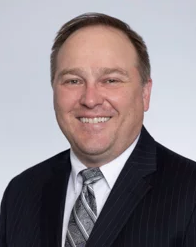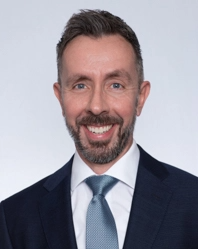Kamin and Larres: No More COVID Presumptions for Older DOIs
Tuesday, February 13, 2024 | 0
The fact that the now-repealed COVID-19 presumptions did not contain a savings clause means that there are no statutory presumptions for pending COVID claims, even if they have older dates of injury.

John P. Kamin
A look back at case law covering repealed statutes has led the experts at the Law Offices of Bradford & Barthel to conclude that pending COVID-19 claims no longer enjoy any presumption at all unless a case has some kind of judgment stating that the presumptions applied to a specific claim.
As originally reported on the firm’s blog in September and November of 2023, California’s statutory COVID-19 presumptions of compensability expired on Jan. 1, 2024.
Since then, the Law Offices of Bradford and Barthel’s Covid Response Team has fielded countless questions about presumptions, the burden of proof, employer reporting and more.
But what about the repeal of the statutes themselves? What implications did those have?
The general rule is that any rights that are not reduced to a judgment are lost absent a savings clause.

Louis A. Larres
When one examines the COVID-19 statutory presumptions, which are LC 3212.86, LC 3212.87 and LC 3212.88, no savings clause exists. Without a savings clause, the statute’s repeal language automatically disappears from any pending cases that were not already decided.
Rio Linda Union School Dist. v. Workers’ Comp. Appeals Bd. (2005) featured a detailed discussion of repealed statutes and savings clauses.
In that case, an appellate court ruled that “the repeal of such statutory right applies to all pending cases, at whatever stage the repeal finds them, unless the Legislature has expressed a contrary intent by an express saving clause or by implication from contemporaneous legislation.”
In other words, the repeal means the presumptions can no longer apply to any pending cases unless they already have a judgment saying the presumptions apply.
A case of deja vu
Now, if this sounds eerily familiar to some of the more experienced workers’ compensation practitioners, it’s because the workers’ compensation community had this discussion 15 years ago when Labor Code 139.5 expired. LC 139.5 was a vocational rehabilitation statute that sunset on Jan. 1, 2009, and the dispute that followed led to a WCAB en banc decision in Weiner v. WCAB (Ralph’s Grocery Co.). The 2nd District Court of Appeal later denied a petition for writ of review in the case.
The Weiner decision is perhaps better remembered as the “ghost statutes” decision because it determined that LC 139.5 did not continue to operate as a ghost statute after its repeal.
The term “ghost statutes” traces back to a prior WCAB significant panel decision in Godinez v. Buffets Inc. (2004), which quoted Hamlet to say that some statutes may “still have a shadowy existence” after their demise and continue to be “doomed” like ghosts “for a certain term to walk the night.”
The commissioners concluded that LC 139.5 was not a ghost statute. They ruled in Weiner and the line of cases that followed determined that unless an applicant’s rights to vocational rehabilitation had “vested,” they were no longer entitled to vocational rehabilitation benefits under the now-repealed statute.
So what led an applicant’s vocational rehabilitation rights to vest? An order from the Rehabilitation Unit.
This means that after Jan. 1, 2009, only applicants who already had an order from the Rehabilitation Unit awarding vocational rehabilitation benefits were entitled to them.
Applying that reasoning to the COVID presumptions, an applicant would only be entitled to a COVID presumption if there was already a judicial order stating that the COVID presumptions applied to an applicant’s case.
Looking forward
Great. So what does all that mean for 2024? It means there are no COVID-19 presumptions for any pending claims without a final order.
For example, if applicant Dave filed a claim alleging that he got COVID-19 on Dec. 1, 2023, he does not get to rely on any of the COVID presumptions that were repealed. In Dave’s case, there wouldn’t be enough time for a final judgment on whether the presumptions applied.
In theory, the administrator on Dave’s claim would have up to 90 days to issue a compensability decision instead of the 30-day or 45-day time frames listed in the presumptions.
Let’s change that fact pattern a little bit. Let’s say Dave’s alleged COVID-19 date of injury occurred on Feb. 6, 2022, and the defendant had notice of the claim but failed to issue a denial in a timely manner. That claim would be presumed compensable, and the defendant would not be able to issue a retroactive denial unless there was rebuttal evidence found after the decision time frame.
'Normal' claims
For all of those pending COVID-19 claims without a court order saying the presumption applied, they now have reverted to “normal” claims with a 90-day decision time frame. The applicant bears the burden of proof to establish compensability. He must show by a preponderance of the evidence (more than 50%) that his work put him at greater risk of contracting COVID-19 than his nonindustrial life.
What types of evidence would that be? Factual and medical evidence showing that work caused the applicant’s COVID-19.
Practically speaking, it is still important to evaluate each claim with a detailed factual investigation. Hypothetical examples:
- If an applicant has evidence that 19 other people at the job site had COVID-19 and the applicant got COVID-19 during the same week as the co-workers, a judge is probably going to rule in favor of the applicant, especially if there is no evidence of nonindustrial exposure.
- Conversely, if the applicant has no evidence that anyone else at work had COVID-19, but does live with five relatives who all had COVID-19 during the week of applicant’s infection, a judge should probably rule in favor of the defendant.
Each of these cases turns on individual facts, so we still urge a strong factual investigation whenever a person alleges that he got COVID-19 from work.
Conclusion
The COVID-19 presumptions are not ghost statutes that are “doomed for a certain term to walk the night.” Absent a judicial order saying the presumptions apply, there are no more statutory presumptions for pending COVID-19 cases.
Instead, defendants should treat those pending claims like the “normal” claims mentioned above and still do thorough factual investigations into them for evidence of industrial and nonindustrial exposures.
Finally, and perhaps most importantly, please do remember the wise words of Ray Parker Jr., who famously said, “I ain’t afraid of no ghost.”
Louis Larres is a partner and area managing attorney at Bradford and Barthel’s Fresno office, and the director of the firm’s Appellate Division. John P. Kamin is a workers’ compensation defense attorney and equity partner at Bradford & Barthel’s Woodland Hills location. He is WorkCompCentral's former legal editor. This entry from Bradford & Barthel's blog appears with permission.







Comments